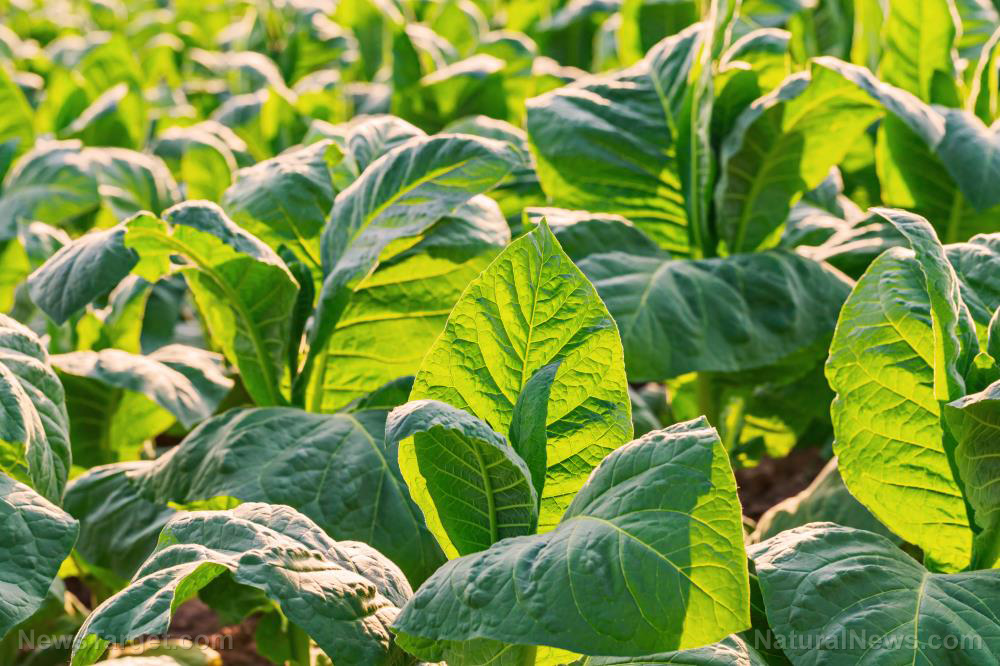
A recent study identified Indian pennywort, emperor's candlesticks, papaya, garlic, turmeric, aloe vera and cotton tree as some of the plants traditionally used by Indian healers for wound healing.
In the Balkan Peninsula (southeastern Europe), meanwhile, folk healers were said to have made infusions, decoctions, ointments, skin oils and balms to treat wounds and various skin issues using plants like broadleaf plantain, St. John's wort, yarrow, marigold, elderberry, coltsfoot and plums. These plants have been reported by studies to have potent wound healing effects, confirming the reliability of herbs as natural remedies.
When SHTF, you can take advantage of the healing properties of various medicinal plants by growing them in your backyard or home garden or by learning how to forage for them. (Related: Going green? Here's what you need to know about medicinal herb gardens.)
7 Wound-healing herbs you can use for first aid
The likelihood of receiving professional medical care if you get injured goes down in times of disaster or emergency. Natural disasters can easily overwhelm or put a stop to emergency services. This is why it's important to be prepared for these situations. Having a first-aid kit ready along with a well-stocked medicine cabinet is the best way to ensure that even the smallest injuries can get treated so they don't turn into something serious.
Herbs and natural products are generally safer to use and gentler on the body than modern medications. Aside from being effective, researchers agree that herbal medicines cause fewer side effects, especially when taken at the recommended doses. When SHTF and you find yourself needing to treat minor wounds, scratches, insect bites and the like, remember these seven herbs with wound-healing properties that you can use as emergency medicine: (h/t to TheOrganicPrepper.com)
Wolf's bane (arnica)
Arnica montana, also known as wolf's bane, is a perennial plant with yellow-orange flowers native to the mountains of Europe and Siberia but is now widely cultivated in North America. Studies show that wolf's bane is brimming with bioactive components that give it antibacterial, antioxidant, anti-inflammatory and wound-healing properties.
Traditionally used as a topical medicine since the 1500s, wolf's bane extract is now a common ingredient in skin creams, ointments, liniments, salves and tinctures. A study published in the journal Frontiers in Surgery also reported that wolf's bane is "equal in effectiveness to conventional non-steroidal anti-inflammatory drugs (NSAIDs)" and recommended its use for treating postoperative pain and swelling.
Calendula
Calendula officinalis, commonly known as pot marigold, is a flowering plant from the daisy family. Easy to grow and with edible flowers and leaves, this herb has a long history of use in traditional medicine as a wound healing agent. Calendula is said to have anti-inflammatory and antimicrobial properties that make it perfect for dressing wounds. In fact, calendula flowers can be made into a paste or decoction and applied topically to treat abrasions and skin infections.
According to a review published in the journal Wounds, calendula contains bioactive polysaccharides and other compounds that help prevent infection, stimulate immune response at the site of injury and promote faster wound healing. (Related: Home remedies for preppers: 5 Medicinal plants for wound healing.)
Comfrey
Symphytum officinale, or comfrey, has been the go-to natural remedy for muscle pains and joint complaints for centuries. A flowering plant from the forget-me-not family, comfrey is known for its powerful anti-inflammatory, de-swelling and pain-relieving properties that make it excellent for treating blunt injuries. These same properties also make comfrey a great natural alternative to NSAIDs.
In addition, studies have found that the roots and leaves of comfrey can help accelerate wound healing when applied topically, thanks to a compound called allantoin that helps new skin cells grow.
Echinacea
Several plants that belong to the genus Echinacea are known to reduce inflammation and boast a long history of use as wound-healing agents. Among them, E. pallida (pale purple coneflower) and E. purpurea (purple coneflower) are said to have the best anti-inflammatory and wound healing properties, thanks to a compound called echinacoside. Echinacoside has been shown to promote cicatrization (reduction of wound size) and exert antibacterial and protective effects on skin connective tissue.
Although more popular today for its antiviral activities, E. angustifolia, also known as narrow-leaved purple coneflower, also exerts beneficial effects when applied on wounds.
Plantain
Plantago major, known by its common name the broadleaf plantain, has been used since ancient times to treat a wide range of issues, including constipation, coughs and wounds. Plantain leaves, in particular, were used by the Vikings for wound healing and by the ancient Greeks to treat dog bites. Topical use of plantain leaves usually involved mixing them with honey, while oral use saw them being boiled with butter before being eaten.
According to a study published in the journal Food Bioscience, plantain owes its wound-healing properties to ursolic acid and oleanolic acid, two active compounds that have been shown to increase the rate of wound closure and improve wound healing time. (Related: Home remedies 101: How to create your own plantain salve.)
St. John's wort
Hypericum perforatum, also called St. John's wort, is a widely known medicinal plant with yellow flowers. Although it is considered a noxious weed in seven U.S. states, studies show that St. John's wort has plenty of health-supporting properties, including antidepressive and wound healing activities. Preparations containing St. John's wort (e.g., oils and tinctures) are often used to treat minor wounds, sunburn, abrasions, bruises, contusions and many other skin issues.
According to a study published in the Journal of Ethnopharmacology, the wound-healing effects of St. John's wort appear to be "mainly due to the increase in the stimulation of fibroblast collagen production and the activation of fibroblast cells," which help in wound repair by closing the damaged area.
Yarrow
Achillea millefolium, also known as yarrow, is a tall plant from the daisy family that produces dome-shaped clusters of small white flowers. Native to North America, this herb is known for its astringent qualities and was used by Native Americans and early settlers to treat wounds and stop bleeding. Yarrow is said to be good for scrapes and bruises as well as for fevers, colds and the flu. Yarrow essential oil also contains compounds that help reduce inflammation and swelling and fight bacterial infections.
In a study published in the Journal of Pharmacopuncture, researchers found that yarrow essential oil can stimulate collagen production when applied to open wounds, thus helping speed up wound closure. (Related: Your SHTF medicinal herb kit should contain yarrow.)
Medicinal plants are versatile, effective and inexpensive remedies that you can count on in times of emergencies. If you have enough space to grow a garden, plant plenty of useful herbs in addition to edible crops so you have an abundant supply of food and natural medicines when SHTF.
Herbs.news has more on useful plants that deserve a place in your medicine cabinet.
Watch the video below to learn more about comfrey herbal medicine benefits, uses and side effects.
This video is from the Holistic Herbalist channel on Brighteon.com.
More related stories:
Prepper medicine: How to use parsley, a versatile medicinal herb.
10 Medicinal plants you should have in your home garden.
A member of the mint family, the bugleweed is a powerful medicinal herb you should be stocking up on.
Herbal medicine cabinet: 9 Herbs for wound care.
6 Tree bark remedies you can use as survival medicine.
Sources include:
Plants.USDA.gov [PDF]
Please contact us for more information.






















